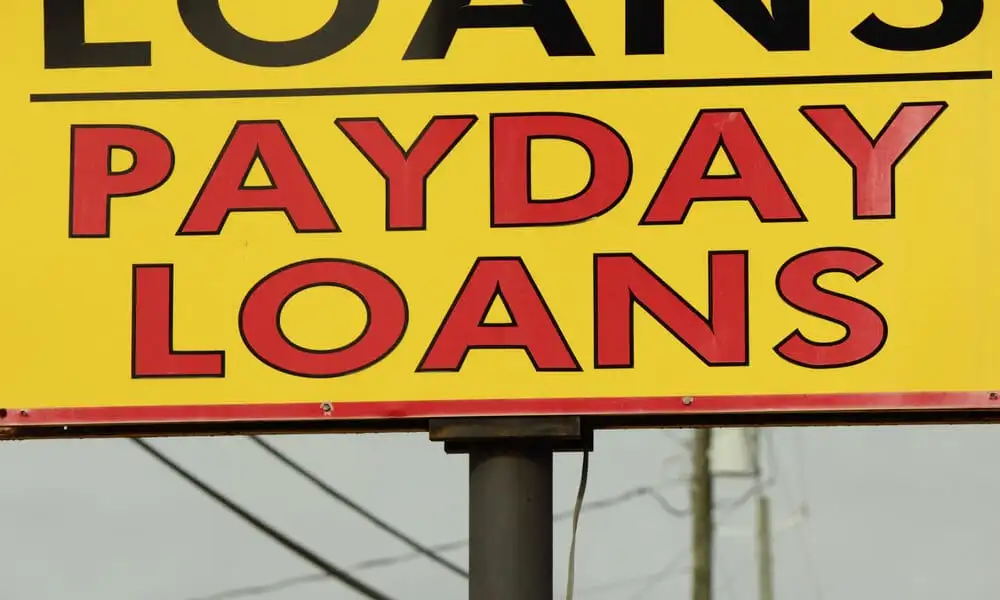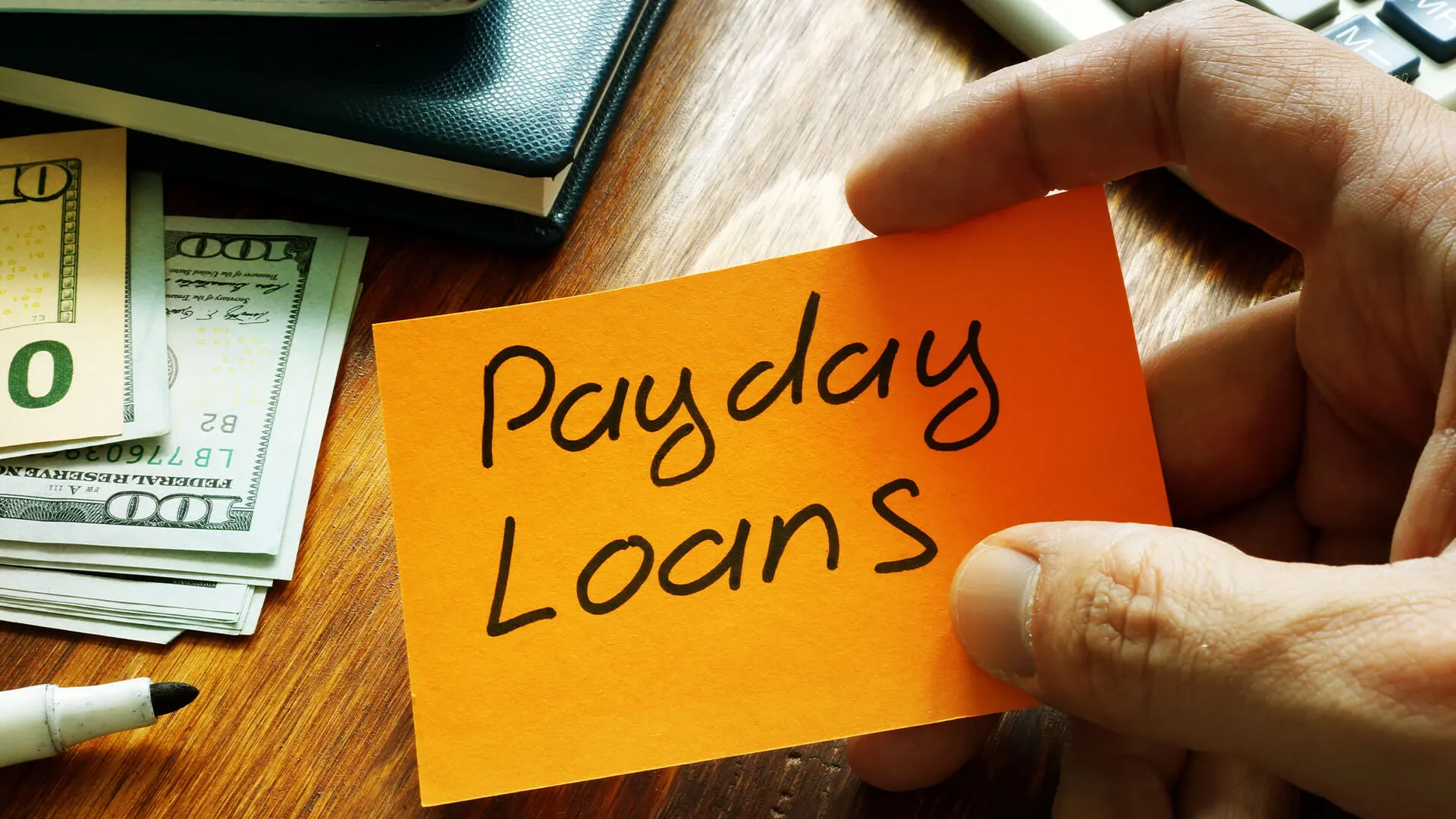Payday loans are short-term, high-interest loans typically aimed at providing immediate cash to borrowers until their next paycheck. These loans are generally small, ranging from $100 to $1,000, and are designed to be repaid in a short period, usually within two weeks to a month. The appeal of payday loans lies in their accessibility and quick approval process, often requiring minimal documentation and no credit checks.
Historical Background
The concept of payday loans has evolved over the years. Short-term lending has been around for centuries, but the modern payday loan industry began to take shape in the late 20th century. Initially, these loans were marketed as a way to bridge financial gaps for people with urgent needs. However, the industry has grown significantly, leading to increased scrutiny and regulation.
Purpose and Use Cases
Payday loans are often used by individuals facing immediate financial needs such as unexpected medical expenses, car repairs, or other urgent bills. They are also used by people who have limited access to traditional credit options due to poor credit history or lack of collateral. While payday loans can provide quick financial relief, they come with high interest rates and fees, which can lead to a cycle of debt if not managed properly.
The Payday Loan Industry
Market Size and Demographics
The payday loan industry is a multi-billion dollar market in the United States and globally. Millions of people utilize payday loans each year, with a significant portion of borrowers being from low-income households. Studies show that payday loan borrowers often have limited access to traditional banking services and may rely on these loans to cover basic living expenses.
Major Players
The payday loan industry includes a mix of small, local lenders and large, national chains. Some of the major players in the industry include companies like Advance America, Check Into Cash, and CashNetUSA. These companies have established a widespread presence, offering both physical storefronts and online lending platforms.
Online Payday Loans
The rise of the internet has significantly transformed the payday loan industry. Online payday loans have become increasingly popular, offering greater convenience and accessibility. Borrowers can apply for loans online, receive approval within minutes, and have funds deposited directly into their bank accounts. However, online payday loans also come with risks, including potential for fraud and predatory lending practices.
Regulatory Landscape
Federal Regulations
In the United States, payday loans are subject to federal regulations designed to protect consumers from predatory lending practices. Key federal laws include the Truth in Lending Act (TILA), which requires lenders to disclose the total cost of the loan, including interest rates and fees, and the Dodd-Frank Wall Street Reform and Consumer Protection Act, which established the Consumer Financial Protection Bureau (CFPB) to oversee and enforce consumer financial laws.
State Regulations
State regulations on payday loans vary widely. Some states have stringent laws that cap interest rates and limit the number of payday loans a borrower can take out, while others have more lenient regulations. A few states, such as New York and Arizona, have banned payday loans altogether. The variation in state laws creates a complex regulatory landscape for both lenders and borrowers.
International Regulations
Payday loan regulations also differ significantly across countries. In the United Kingdom, the Financial Conduct Authority (FCA) enforces strict regulations, including a cap on interest rates and fees. In Canada, payday loans are regulated at the provincial level, with each province setting its own rules. In Australia, payday loans are governed by the National Consumer Credit Protection Act, which includes provisions to protect consumers from excessive fees and interest rates.
Economic and Social Impact
Financial Stability and Debt Cycle
One of the most significant concerns about pay day loans is their impact on financial stability. High interest rates and fees can lead to a cycle of debt, where borrowers are forced to take out new loans to repay existing ones. This cycle can be difficult to break and can result in long-term financial hardship. Studies have shown that payday loan borrowers are more likely to experience financial distress and have lower credit scores compared to those who do not use payday loans.
Impact on Low-Income Communities
Payday loans are disproportionately used by low-income individuals and communities. These borrowers often lack access to traditional credit and banking services and may rely on payday loans to cover basic expenses. However, the high cost of these loans can exacerbate financial instability and perpetuate poverty. Critics argue that payday loans exploit vulnerable populations and contribute to economic inequality.
Societal Costs and Benefits
The societal impact of payday loans is a topic of ongoing debate. Proponents argue that payday loans provide a necessary financial service, offering quick access to cash for individuals who might not qualify for traditional loans. They also highlight the potential economic benefits, such as job creation in the payday lending industry. On the other hand, critics point to the high cost of pay day loans and their contribution to financial instability, which can result in broader societal costs, including increased reliance on social services and negative impacts on mental and physical health.
Alternatives to Payday Loans

Traditional Bank Loans
Traditional bank loans are often a more affordable alternative to pay day loans. Banks typically offer lower interest rates and longer repayment terms. However, traditional loans usually require a good credit history and may involve a more extensive application process, making them less accessible for some borrowers.
Credit Unions
Credit unions often provide small-dollar loans with more favorable terms compared to payday lenders. Many credit unions offer Payday Alternative Loans (PALs), which have lower interest rates and fees. These loans are designed to provide a safe and affordable borrowing option for individuals facing short-term financial needs.
Personal Loans and Installment Loans
Personal loans and installment loans can also serve as alternatives to pay day loans. These loans are typically available from banks, credit unions, and online lenders and offer longer repayment terms and lower interest rates. Borrowers can use personal loans for a variety of purposes, including debt consolidation, medical expenses, and home improvements.
Community Assistance Programs
Various community assistance programs can help individuals in financial distress. Nonprofit organizations, charities, and government agencies offer a range of services, including financial counseling, emergency assistance, and grants. These programs can provide immediate relief and support long-term financial stability.
Consumer Protection and Advocacy
Consumer Rights and Education
Consumer protection and education are crucial in the context of pay day loans. Borrowers need to be aware of their rights and the potential risks associated with pay day loans. Financial literacy programs can help individuals make informed borrowing decisions and explore alternative financial solutions.
Role of Advocacy Groups
Advocacy groups play a vital role in promoting consumer protection and challenging predatory lending practices. Organizations such as the National Consumer Law Center (NCLC) and the Center for Responsible Lending (CRL) work to advance policies that protect consumers and promote fair lending practices. These groups also provide resources and support for individuals affected by payday loans.
Legislative and Policy Initiatives
Legislative and policy initiatives are essential for addressing the challenges associated with pay day loans. Efforts to cap interest rates, regulate lending practices, and promote alternative financial products can help protect consumers and reduce the negative impact of pay day loans. Policymakers must balance the need for consumer protection with the availability of credit for those who need it.
Technological Innovations in Payday Lending
Digital Lending Platforms
The rise of digital lending platforms has transformed the payday loan industry. These platforms offer a convenient and efficient way for borrowers to access loans online. However, they also raise new challenges, including data security and the potential for increased predatory practices. Ensuring robust regulations and consumer protections in the digital lending space is critical.
Fintech Solutions
Fintech solutions are emerging as alternatives to traditional pay day loans. Innovations such as earned wage access (EWA) programs allow employees to access a portion of their earned wages before payday. These solutions can provide immediate financial relief without the high costs associated with payday loans. However, they also require careful regulation to ensure consumer protection.
Blockchain and Peer-to-Peer Lending
Blockchain technology and peer-to-peer lending platforms offer additional alternatives to payday loans. Blockchain can provide secure and transparent lending transactions, while peer-to-peer platforms connect borrowers directly with lenders, potentially reducing costs. These technologies have the potential to democratize access to credit, but they also require regulatory oversight to prevent fraud and abuse.
Case Studies and Personal Stories
Case Study: The Impact of Pay day Loans on Individuals
Examining case studies and personal stories can provide valuable insights into the impact of pay day loans on individuals. These stories often highlight the challenges and consequences of using pay day loans, including the struggle to break the cycle of debt and the emotional toll of financial stress. Understanding these experiences can inform efforts to improve consumer protection and support.
Success Stories: Alternatives to Pay day Loans
Success stories of individuals who have successfully avoided or overcome the challenges of pay day loans can provide hope and inspiration. These stories often involve accessing alternative financial solutions, such as credit union loans, community assistance programs, or financial counseling. Highlighting these success stories can encourage others to explore safer and more sustainable financial options.
Future Trends and Developments
Regulatory Trends
The regulatory landscape for payday loans is continually evolving. Future trends may include increased federal oversight, more stringent state regulations, and the introduction of new consumer protection measures. Policymakers must stay informed about industry developments and adapt regulations to address emerging challenges and opportunities.
Industry Innovations
The payday loan industry is likely to continue evolving, with new technologies and business models shaping the future of short-term lending. Innovations such as AI-driven underwriting, digital wallets, and alternative credit scoring methods have the potential to improve access to credit and reduce costs. However, ensuring that these innovations benefit consumers and do not exacerbate existing problems is crucial.
Consumer Behavior and Preferences
Consumer behavior and preferences are also changing, influenced by technological advancements and increased awareness of financial risks. As consumers become more financially literate and seek out safer and more affordable borrowing options, the demand for payday loans may decline. Financial education and access to alternative financial products will play a significant role in shaping consumer behavior.
Economic and Social Impact (Continued)
Financial Literacy and Borrowing Behavior
Financial literacy plays a crucial role in how individuals manage their finances, including borrowing decisions. Studies indicate that many payday loan borrowers have limited financial literacy, which can contribute to their reliance on high-cost borrowing options. Improving financial education and awareness can empower individuals to make informed financial choices and avoid the pitfalls of pay day loans.
Impact on Credit Scores
Pay day loans can have a significant impact on borrowers’ credit scores. While payday lenders typically do not report to credit bureaus, delinquency or default on pa yday loans can lead to collections and negative marks on credit reports. This can make it more challenging for borrowers to access affordable credit in the future and may perpetuate a cycle of financial instability.
Debt Collection Practices
Debt collection practices in the payday loan industry have raised concerns about harassment and aggressive tactics. Some payday lenders employ third-party debt collectors to pursue unpaid loans, which can result in frequent calls, letters, and even legal action against borrowers. Regulating debt collection practices is essential to protect consumers from abusive and unfair treatment.
Alternatives to Payday Loans (Continued)
Employer-Based Alternatives
Employer-based alternatives to pay day loans are gaining traction as employers seek to support their employees’ financial well-being. Earned wage access (EWA) programs allow employees to access a portion of their earned wages before payday, often without the high fees associated with traditional payday loans. These programs can provide a more sustainable financial solution for workers facing short-term cash needs.
Impact of COVID-19 Pandemic
The COVID-19 pandemic has highlighted the financial vulnerabilities faced by many individuals and families, leading to increased interest in alternative financial solutions. Economic stimulus measures and expanded unemployment benefits provided temporary relief for some, but others turned to payday loans and other high-cost borrowing options to make ends meet. Understanding the pandemic’s impact on borrowing behaviors can inform future policy and support efforts.
Community-Based Financial Services
Community-based financial services, such as nonprofit lenders and community development financial institutions (CDFIs), offer affordable and responsible alternatives to payday loans. These organizations often prioritize financial inclusion and community development, providing loans with lower interest rates, flexible repayment terms, and personalized financial counseling. Supporting these initiatives can promote economic resilience and stability in underserved communities.
Consumer Protection and Advocacy (Continued)
Legal Aid and Support Services
Legal aid organizations play a critical role in advocating for consumer rights and supporting individuals affected by predatory lending practices. These organizations provide free or low-cost legal assistance to borrowers facing debt collection, harassment, or unfair lending practices. Strengthening legal protections and increasing access to legal aid can empower consumers to challenge abusive practices and seek justice.
Public Policy Advocacy
Public policy advocacy is essential for advancing reforms that protect consumers from predatory lending and promote fair lending practices. Advocacy organizations work to influence legislation, regulations, and enforcement actions at the federal, state, and local levels. Policy priorities include capping interest rates, extending repayment periods, and expanding access to affordable credit alternatives.
Consumer Complaints and Regulatory Enforcement
Monitoring consumer complaints and enforcing existing regulations are critical for holding payday lenders accountable for their practices. The Consumer Financial Protection Bureau (CFPB) and state regulatory agencies oversee the payday loan industry, investigate complaints, and take enforcement actions against lenders that violate consumer protection laws. Strengthening regulatory oversight and enforcement mechanisms can deter predatory practices and protect vulnerable consumers.
Technological Innovations in Payday Lending (Continued)

Privacy and Data Security
Privacy and data security are significant concerns in digital lending platforms and fintech solutions. Borrowers share sensitive personal and financial information when applying for loans online, raising risks of data breaches and identity theft. Ensuring robust cybersecurity measures and compliance with data protection regulations is essential to safeguarding consumer information and maintaining trust in digital lending.
AI and Machine Learning
Artificial intelligence (AI) and machine learning are increasingly used in underwriting and risk assessment processes in payday lending. These technologies analyze vast amounts of data to evaluate borrowers’ creditworthiness and determine loan terms. While AI-driven underwriting can streamline lending decisions and improve access to credit, it also raises concerns about algorithmic bias and discrimination. Implementing fair lending practices and transparency in AI use is critical to mitigate risks.
Blockchain and Smart Contracts
Blockchain technology and smart contracts have the potential to enhance transparency and security in payday lending transactions. Blockchain can provide an immutable record of loan agreements and transactions, reducing fraud and ensuring compliance with contractual terms. Smart contracts automate loan processes, such as repayment schedules and interest calculations, improving efficiency and reducing administrative costs. Exploring blockchain applications in payday lending requires careful consideration of regulatory and operational challenges.
Case Studies and Personal Stories (Continued)
Regulatory Impact on Borrower Experiences
Examining case studies of regulatory interventions can shed light on how policy changes affect payday loan borrowers’ experiences. For example, states that have implemented interest rate caps or extended repayment periods may see reduced borrower debt burdens and improved financial outcomes. Understanding these case studies can inform future policy decisions and support efforts to enhance consumer protections.
Personal Experiences and Financial Resilience
Personal stories of individuals who have navigated financial challenges and avoided payday loans can inspire others to seek alternative financial solutions. These stories often highlight the importance of financial resilience, budgeting, and accessing community resources. Sharing diverse personal experiences can promote empathy, resilience, and empowerment among borrowers and advocates alike.
Future Trends and Developments (Continued)
Global Perspectives on Payday Lending
Global perspectives on payday lending offer insights into regulatory approaches, market dynamics, and consumer protections in different countries. Countries such as Canada, Australia, and the United Kingdom have implemented various regulatory frameworks to address payday loan risks while ensuring access to credit. Examining international best practices can inform efforts to strengthen consumer protections and promote sustainable lending practices globally.
Innovation in Responsible Lending
Innovation in responsible lending aims to provide safer and more affordable alternatives to traditional payday loans. Fintech startups, nonprofit organizations, and financial institutions are developing innovative products and services that prioritize consumer well-being and financial inclusion. Examples include income-based lending models, flexible repayment options, and integrated financial education tools. Supporting innovation in responsible lending can expand access to fair and transparent credit solutions for underserved populations.
Long-Term Impact of Policy Reforms
Assessing the long-term impact of policy reforms on payday lending requires ongoing evaluation and monitoring. Policy changes, such as interest rate caps, repayment flexibility, and enhanced consumer protections, can influence market behaviors, lender practices, and borrower outcomes over time. Studying the effects of these reforms can inform evidence-based policymaking and support continuous improvement in financial regulation and consumer protection.
Conclusion
In conclusion, payday loans represent a complex and contentious financial product that serves as a lifeline for some borrowers while posing significant risks for others. Understanding the payday loan industry’s dynamics, including its economic, social, and regulatory aspects, is essential for policymakers, consumer advocates, and financial institutions seeking to promote responsible lending practices and protect consumers.
As the payday loan industry continues to evolve, addressing the challenges of high interest rates, debt cycles, and consumer vulnerability remains paramount. Investing in financial education, supporting alternative financial services, and strengthening regulatory oversight are crucial steps toward fostering a fair and inclusive financial system that meets the needs of all individuals.
By promoting transparency, innovation, and consumer empowerment, stakeholders can work together to mitigate the harms of pay day loans and ensure that borrowers have access to safe and affordable credit options. Ultimately, advancing financial well-being and economic resilience requires collective action and a commitment to promoting equitable access to financial resources for everyone.
Frequently Asked question FAQs about Payday Loans
Q1: What is a payday loan?
A1: A payday loan is a short-term, high-interest loan intended to cover unexpected expenses or to bridge a financial gap until the borrower’s next payday. These loans are typically small amounts, often under $500, and are designed to be repaid within a few weeks.
Q2: How do payday loans work?
A2: Payday loans work by providing borrowers with quick cash, usually in exchange for a post-dated check or access to the borrower’s bank account for repayment. The borrower agrees to repay the loan, plus a fee, by their next payday. If the loan is not repaid on time, additional fees and interest may apply.
Q3: Who typically uses pay day loans?
A3: Pay day loans are often used by individuals who need quick access to cash and do not have other financial resources or credit options available. This includes people with poor credit histories, those facing emergency expenses, or those living paycheck to paycheck.
Q4: What are the interest rates and fees associated with pay day loans?
A4: Pay day loans typically come with very high interest rates and fees. Annual percentage rates (APRs) can exceed 400%, making pay day loans one of the most expensive forms of credit. Fees can include finance charges, service fees, and late payment penalties.
Q5: Are pay day loans regulated?
A5: Yes, pay day loans are regulated, but the level of regulation varies by state and country. Some jurisdictions have strict laws that cap interest rates and fees, while others have more lenient regulations. It’s important for borrowers to understand the laws in their area before taking out a payday loan.
Q6: What are the risks of taking out a payday loan?
A6: The risks of taking out a payday loan include high costs, debt cycles, and negative impacts on credit scores. If borrowers cannot repay the loan on time, they may face additional fees and interest, leading to a cycle of debt. Additionally, defaulting on a payday loan can harm a borrower’s credit rating.
Q7: Can pay day loans affect my credit score?
A7: Pay day loans typically do not directly affect credit scores, as most payday lenders do not report to credit bureaus. However, if a loan goes unpaid and is sent to collections, it can negatively impact a borrower’s credit score. Additionally, repeatedly taking out pay day loans can signal financial instability, which may indirectly affect creditworthiness.
Q8: What alternatives are there to pay day loans?
A8: Alternatives to pay day loans include borrowing from friends or family, using credit cards, seeking assistance from community organizations, negotiating payment plans with creditors, or obtaining a personal loan from a bank or credit union. Some employers also offer paycheck advances.
Q9: How can I apply for a payday loan?
A9: To apply for a payday loan, you typically need to provide personal identification, proof of income, and a checking account. Applications can be made in person at payday loan stores or online. Approval is usually quick, often within minutes or hours.
Q10: What happens if I cannot repay my payday loan on time?
A10: If you cannot repay your payday loan on time, you may be charged additional fees and interest, and the lender may attempt to withdraw funds from your bank account. If these attempts fail, the loan may go into collections, which can damage your credit score and lead to legal action.
Q11: Are pay day loans a good solution for financial emergencies?
A11: Pay day loans can provide quick cash in financial emergencies but should be used with caution due to their high cost. They are often a last resort, as the high fees and interest rates can lead to more significant financial problems if not repaid promptly.
Q12: How can I avoid needing payday loans in the future?
A12: To avoid needing payday loans in the future, create a budget to manage expenses, build an emergency savings fund, reduce unnecessary spending, and explore other credit options. Improving financial literacy and planning can help prevent the need for high-cost borrowing.
Q13: Can I cancel a payday loan after receiving the funds?
A13: Whether you can cancel a payday loan after receiving the funds depends on the lender’s policies and local laws. Some lenders offer a cooling-off period during which you can return the funds and cancel the loan without penalty. It’s essential to read the loan agreement and understand your rights before borrowing.
Q14: What are some common misconceptions about pay day loans?
A14: Common misconceptions about pay day loans include believing they are a quick fix for financial problems, that they have low fees, or that they do not affect credit. In reality, pay day loans can be very expensive and lead to long-term financial issues if not managed carefully.
Q15: Where can I get help if I am struggling with payday loan debt?
A15: If you are struggling with payday loan debt, seek assistance from credit counseling agencies, financial advisors, or legal aid organizations. These resources can help you negotiate with lenders, create a debt management plan, and explore other options for managing your financial situation.

Navigating the Diverse Realms of Tech, News, Business, Lifestyle and Gaming
Meet Linda, a versatile blogger with a passion for exploring the ever-evolving landscapes of technology, news, business, and more. Gabriel’s passion for staying at the forefront of diverse niches reflects in every blog post. Through his insightful blogs, Scott provides readers with a window into the latest trends, wellness tips, and the ever-evolving landscape of daily living. With a knack for distilling complex topics into digestible insights, Debra invites readers to join her on a journey where each blog post is a window into the dynamic intersection of modern trends and business dynamics.


